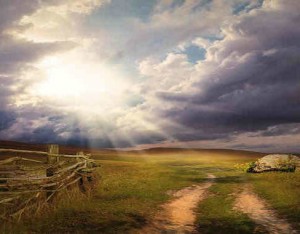Reflections on the Drunkard’s Walk
The “drunkard’s walk” is a mathematical expression describing random motion. If we watch a drunk try to walk, we cannot predict his next staggering step (whether it will be forward, backward, or sideways to the right or left) nor can we predict his next staggering step after that, and so on. Watching a drunkard’s walk is like trying to predict the motion of a molecule bouncing unpredictably off other molecules.

Leonard Mlodinow, a professor at Caltech, has written engagingly in his book, The Drunkard’s Walk, about how randomness rules our lives. Almost everything important that happens in our lives is contingent upon a series of linked but unpredictable choices. We make decisions with limited information, in response to chance encounters, without knowing the outcomes in advance, often with life-changing consequences. We attribute successes and failures in life to seemingly clear and obvious “causes,” when in actuality our decisions are affected by randomness. We try to see patterns in everything we do, but often there aren’t any patterns except the ones we superimpose on the facts after the fact. It turns out that our minds are really good at imposing order on chaos. And we usually impose (or “see”) the simplest patterns of “cause and effect” in the most complicated, multi-variable decision spaces.

Our hindsight is perfect. Because we have lots more information about past choices than ones we will make today, we tend to make judgments about today’s choices based on yesterday’s information. If a past decision (which was made based on limited information) turned out well, we conclude we are good decision makers who will make good decisions today. We assume we are smart and talented and, therefore, we deserve to be successful now and in the future. The truth of the phrase—“It’s better to be lucky than smart”—never occurs to us. On the other hand, if a past decision turned out badly, we may assume we are poor decision makers who do not deserve success.
Fortunately, “fortune” (in the sense of getting what we want) does favor the prepared, because preparation is a way we can increase the odds slightly more in favor of getting what we want. Also, the more times we try something, the more likely we are ultimately to succeed—which is another way to increase the odds more in our favor. So, “self-fulfilling prophecies” (such as, “If at once you don’t succeed, try, try, again”), that motivate our preparation and resilience, also may slightly increase the odds of getting what we want, even in a world of randomness.

On the other hand, if we feel “called” (by the Cosmos, God, or a “still small voice”) to follow our passion and serve others in a life of meaning and purpose, we optimize the odds of doing what we are supposed to do, even in world of randomness. Each new decision we make (whether based on limited information, in response to chance encounters, or otherwise) pivots toward that intended outcome.




